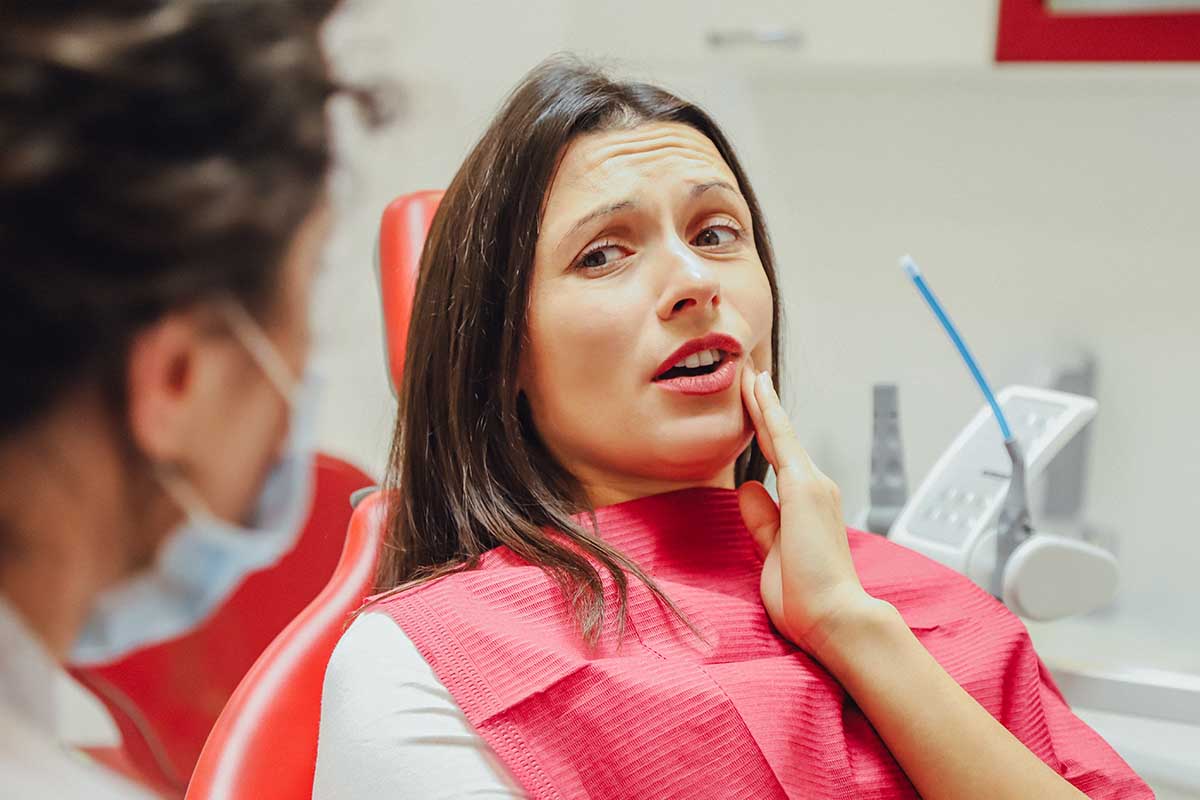When trauma occurs to your teeth, gums, or jaw, there is a chance that it may impact your ability to speak and chew properly. It may also change your appearance. Common oral injuries need to be treated quickly by the right professional.
Traumatic oral injuries are not caused by any sort of infection or other illness. Instead, they are caused by impact. Some of the most common sources of these injuries are falls, car accidents, and sports mishaps. However, less common, sometimes these injuries are caused by biting down on foods that are too hard.
If you’ve experienced mouth trauma, contact your dentist to determine if emergency dental services are needed.
Emergency Room or Emergency Dental Services
If you or a loved one has experienced an injury to your teeth or gums, your first instinct may be to seek out emergency dental services. Before you do, make sure you aren’t dealing with other injuries that need more immediate attention. Has the injured individual experienced any of the following:
- Loss of consciousness
- Memory issues
- Severe bleeding
- Difficulty swallowing
- Trouble opening or closing mouth
- Intense jaw pain
- Any suspicion of spinal cord injury
- Evidence of injury that could lead to permanent damage or worse
Most hospitals employ oral surgeons to ensure the patients with dental trauma receive the support they need. These surgeons treat many mouth injuries taking the appropriate steps to stabilize the patient.
Treating the Most Common Dental Injuries: Emergencies
When should you get emergency dental treatment? If you haven’t suffered any additional traumatic injuries but have serious dental trauma, you can seek emergency dental assistance. For example, you might do this if you have a broken tooth or one that’s been knocked out and you’re in excruciating pain.
You need emergency treatment if immediate action is needed to save or restore a tooth, or there is too much pain for you to function until a regular dental appointment. If your dentist doesn’t take emergency appointments, they may be able to refer you to somebody who does.
Teeth That Are Knocked Out or Broken in Half
A tooth that has been knocked out entirely is called an “avulsed” tooth. If this happens to you, remember that an endodontist can save your tooth. First, rinse it with milk, never touching it by the root. If possible, place it back into the socket gently. If not, hold the tooth in your mouth. You may also put it in a glass of milk. Don’t let it dry out.
An emergency dentist or endodontist may be able to set the tooth back into the mouth to have it reattached to the jawbone. There may be complications, which could prevent this from happening, for example:
- It takes too long to get treatment
- The tooth dries out
- Your jaw bone is broken
Keep in mind that a broken tooth is a dead tooth. Therefore, it will require a root canal and likely a crown.
A tooth that has broken in half has had the pulp severed. However, it may be repairable. Dentists can use a process called bonding to make the tooth whole again. In most cases, an endodontist will need to perform a root canal.
Chips and Cracks: Non-Emergency Oral Injuries
Some injuries don’t need emergency treatment, but it is important to seek help soon. For example, if you suffer an injury that causes a minor chip or crack in your tooth, contact your dentist. They’ll want to get you in for an x-ray and to repair the tooth. In some instances, the crack or break may be more extensive than you realize. In these situations, you may need more intensive treatment.
Help for Traumatic Mouth Injuries at Access Endodontics
A large number of traumatic injuries require a follow-up visit. You may be referred to a quality provider for a root canal, surgery, or dental restoration. Access Endodontics will be able to take action to increase the chance of you keeping the tooth. Connect with our team at 410.304.7226 today to schedule an appointment or consultation.

